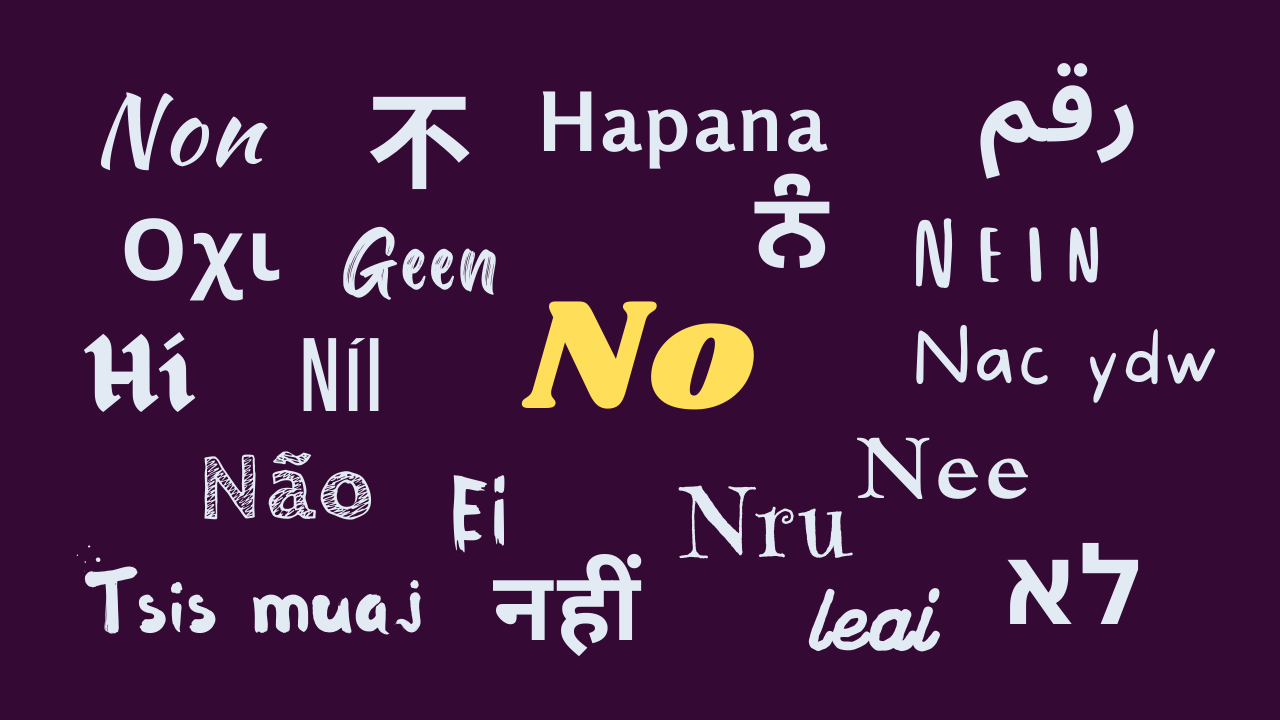What No Means for Fundraisers
Jul 03, 2022
Be open to hearing what donors are really saying...
What "No" Means - from your donor
- I'm too busy - You haven't prepared me for this conversation, or I'm not ready to make this level of commitment
- I don't trust you - You or your charity have not created a feeling of trust personally or organizationally
- This isn't on my list of priority giving - Your project does not align with my values
- Leadership isn't behind this - I don't have enough of my interest invested in this project to convince my partner/ spouse/ members of the family/ company leadership/ other board members that this is a project for us
- I'm afraid of moving this forward - If I say yes to this project, will you continually come back with additional solicitations, although I will not have seen the outcomes on this project
- I'm not the person you think I am - You overestimated my capacity to support you, or this project does not align with my values
- I don't have the resources you think I do - You overestimated my financial capacity, or things have changed financially for me or I have commitments (philanthropic or otherwise) you haven't taken into account
- I'm not the kind of person that does things like this - You overestimated the increase in giving you asked from me or my depth of commitment to your mission and outcomes, or you asked me to do something extraordinary, but didn't inspire me enough to follow
- I don't want to open the door to a long-term engagement - Right now I have other commitments or am unsure about a financial situation and prefer to make a one-year gift
- I understand that this discussion will cause me to think about other things I just don't want to deal with right now - Exactly that
What it doesn't mean:
- I see the world the way you do.
- I've carefully considered every element of this proposal and understand it as well as you do.
- I dislike this project, the mission or you.
- Go ahead and try out another project without knowing what will speak to my head and my heart.
- Never approach me again.
- Drop me like a hot potato or ignore me or exclude me from your valued supporters.
Working with donors moving into their philanthropy into impact, major or principal giving means taking a long view of the relationship.
When you are thinking of asking a donor to increase giving a gift or a longer-term commitment to your nonprofit, or simply a project at a higher level, they need to take time for consideration. You need to provide them inspiration about the long-term view and what lies beyond.
Discovery calls to get to know your donor, in their environment, at an event, or during a tour of the services your nonprofit provides can help you avoid many of these "No" situations.
When the donor and fundraiser and nonprofit have a trusting relationship a donor can feel comfortable telling you the truth about their situation. I have heard each of these and others...
- "I'm paying for school for my autistic grandnephew in the US because his parents don't have the resources."
- "This is interesting, but our foundation has decided to keep our focus on X even though we supported Y in the past."
- "With the financial uncertainty going on right now, we would like to wait until November to make our final giving decisions regarding new commitments."
- "My partner has cancer - not many friends know, please don't say anything - but I just can't make that kind of decision now."
- "We were actually thinking of something at the six-figure level. Your proposal surprises me."
- "We have involved our (adult) children in the decision-making at the foundation and are disappointed in their choices, but have already agreed to abide by their decisions this year."
Most donors and prospective donors want to say yes - the joy they feel in giving cannot be replicated except by doing more. As fundraisers, it is our job to help them connect deeply with their values and desires, and when those are channeled through the work our charity is doing, how wonderful is that yes.
Always be ready for "Yes," as well as a "No" and be gracious in either your excitement or disappointment. Be willing to ask what may have moved the donor to a yes when a no is received to better understand and partner with the donors. And keep learning more.

